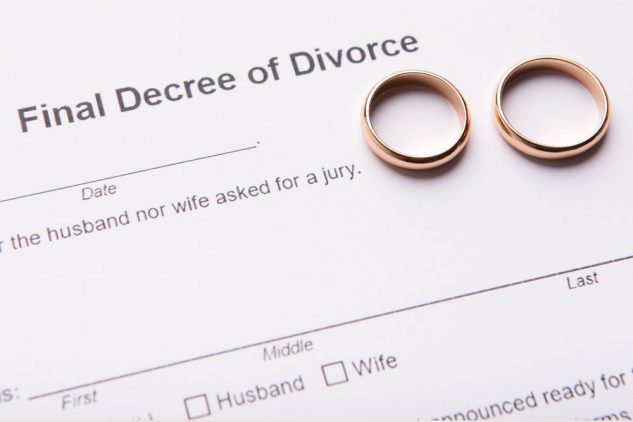What is a Divorce Decree?
Following a divorce, it’s beneficial to comprehend what the documents are, and where you should go to acquire them.
Following your divorce, you may be puzzled about the details of the divorce documents. Each of the divorce documents provides a different objective.
You obtain your divorce decree from the courts, but a divorce certificate isn’t issued by the courts.
Exactly what Is a Divorce Decree?
A divorce decree is a legal court documentation that is the final judgment from a divorce court. It consists of information about your divorce including alimony, child support, custody rights, visitation rights, property allocation, and other details.
A lot of divorce decrees are comprehensive and includes all of the jointly agreed information in your divorce, like who is responsible for obtaining health and life insurance, whether the wife may take her maiden name again, and the way you will split up your debt.
Only the courts can issue divorce decrees. You get it when your case concludes. If your case went to trial, the divorce decree will signify the conditions of the judge’s decision and acts as a judgment that both parties are required to follow.
If you did not head to trial but, instead settled your case, the divorce decree will include the conditions of the settlement. The decree continues to act as a final judgment, but both of you have settled upon the conditions of your own divorce devoid of the court’s input.
Having you case settled takes the decision out of the control of the judge as long as the decision is not implausible or biased. If it is biased, the judge will typically step in to assist you in working out the conditions of your settlement.
How to Obtain a Copy of Your Divorce Decree
When you want a certifiable copy of the divorce decree months or even years following your divorce, you can typically obtain it in the county clerk’s office at your courthouse. A number of states have divorce decrees in the office of the county clerk, so you’ll need to confirm with your state.
Often only individuals who were involved in the divorce, or their attorneys, may pick up the divorce decree.
What Happens After You Get Your Divorce Decree?
After you obtain your divorce decree, you’ll want to be sure you’re complying with the decree and that your ex spouse is, also. For instance, your ex spouse has responsibilities produced by the decree, like paying alimony, child support, or getting insurance policies. You are obligated for making sure your ex spouse is following the decree.
In addition, if your ex spouse is required pay all or a portion of the marital debt, you’ll want to be sure your ex spouse is doing so. If not, you might be held accountable for the debt.
After you obtain your divorce decree, be sure that you:
- Read the decree for authenticity
- Speak with your attorney if you have questions
- File an appeal right away when you’re not content with the judge’s decision following a trial
- Modify your will
- Replace beneficiaries on your insurance policies
- Revise emergency contacts for your child’s school
- Modify your power of attorney
- Terminate or change credit cards
- Place savings and checking accounts in just your name
- Have your ex spouse go back to court if the ex spouse is in violation of the decree
- Take the case back to court if you need to modify alimony or child support in the future
Exactly What Is a Divorce Certificate?
Divorce certificates are entirely different documents than divorce decrees. A certificate is not developed by a court. The health department in your state or the bureau of vital records issues the certificate. This is generally the same place where you obtain your birth certificate.
Dissimilar to drawn-out divorce decrees, divorce certificate is a straightforward document that indicates:
- You’re divorced
- The names of both of the ex spouses
- The divorces location
- The divorce date
Divorce Certificates Uses
Divorce certificates are used for limited purposes, and not every state will issue divorce certificates. It can be used for:
- Obtaining a name change
- Demonstrating proof of divorce without disclosing your divorce details
- Obtaining a passport, unless your name change isn’t on the divorce certificate
- Obtaining a travel visa
- Inheritance objectives, to demonstrate that you’re single
- Getting re-married
- Anywhere you’re required to demonstrate proof of divorce
Source:
-
DeLoe, R. (2020, September 03). Divorce Decree vs. Divorce Certificate – What’s the Difference? Retrieved November 05, 2020, from https://www.legalzoom.com/articles/divorce-decree-vs-divorce-certificate-whats-the-difference
Choose the Right Divorce Lawyer in Arizona
Regardless of the choice you make, it’s important you make the best choice for you when hiring a divorce attorney. Remember: The decisions you make now can affect your future. Ultimately, choosing the best lawyer will depend on which lawyer feels best for you and your situation.
If you want to learn about Michelle N. Ogborne and see if she is the right attorney to represent you in your collaborative divorce in Arizona, contact us today!
Engaging with an attorney to protect your family is never an easy step. Whether you need to protect your family from the unthinkable or restructure your family through collaborative divorce, we’re here to help. When you’re ready to schedule a consultation with Michelle Ogborne, please visit the scheduling page to get started.







